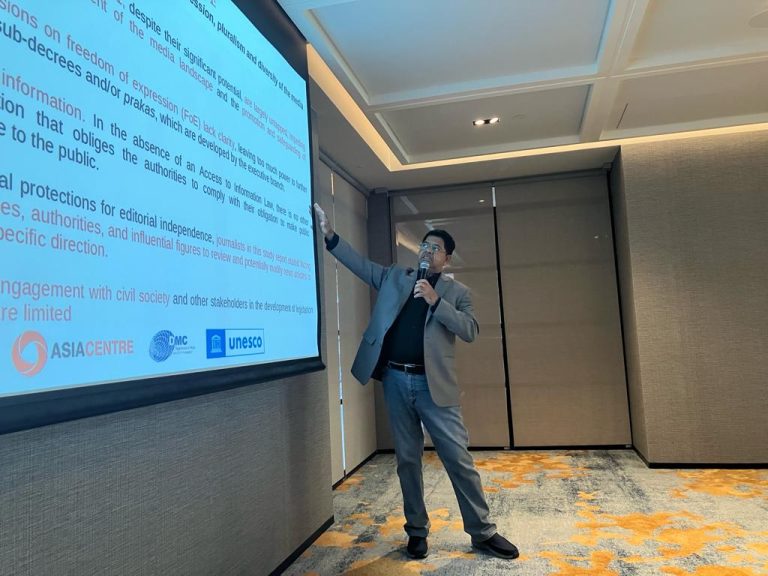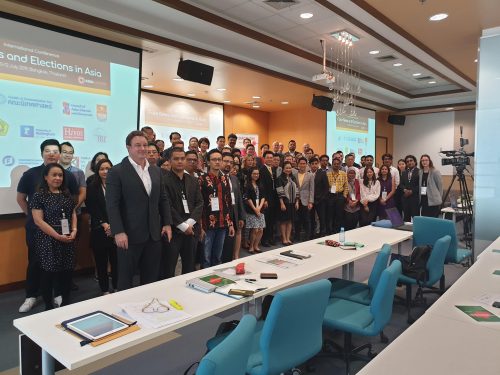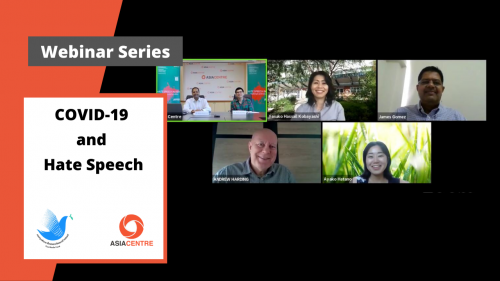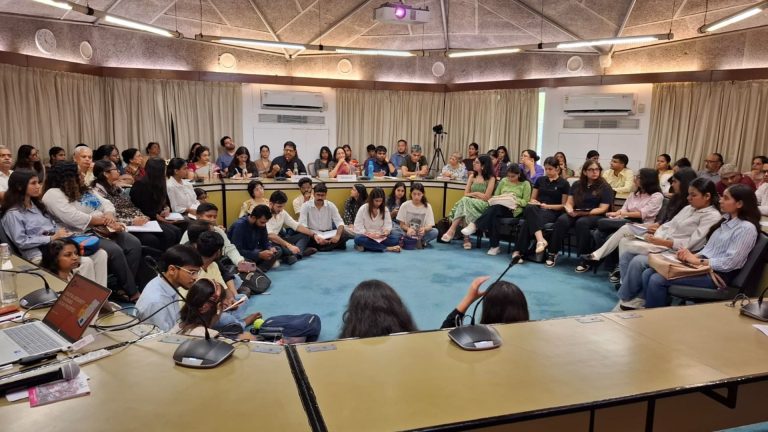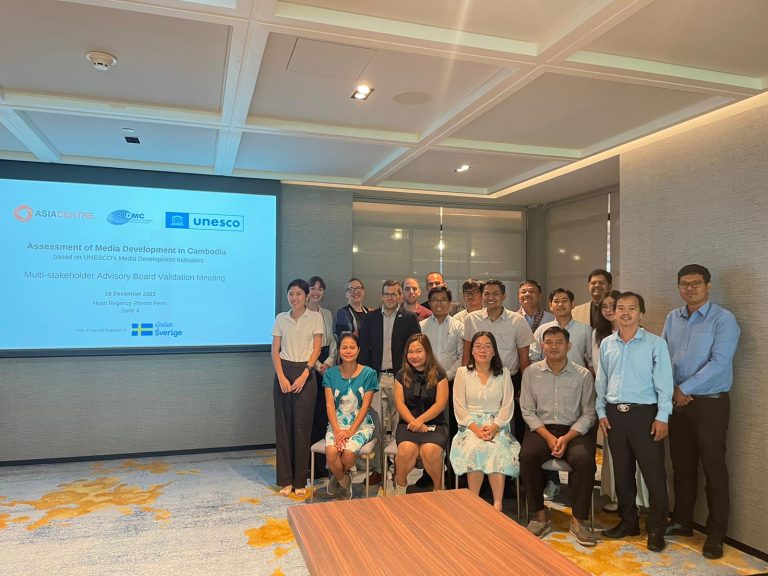
Asia Centre concluded its media assessment research by presenting the findings of its assessment of Cambodia’s media landscape to a multi-stakeholder advisory board during a validation meeting held on 18 December 2023 in Phnom Penh. A group of Cambodian stakeholders, inclusive of representatives from the government sector, media industry, and civil society, labelled the report as a “landmark report” given the depth of its analysis and overall significance since reports on this topic are scarce in the country. This gathering served as the culmination of Asia Centre’s comprehensive year-long assessment of Cambodia’s media landscape.
Formally initiated in February 2023, the research, based on UNESCO’s Media Development Indicators (MDI), encompassed desk research, surveys, key informant interviews, and focus group discussions involving diverse stakeholders within Cambodia’s media landscape. Throughout the assessment process, Asia Centre actively engaged with over 70 individuals to compile a comprehensive understanding of the subject matter.
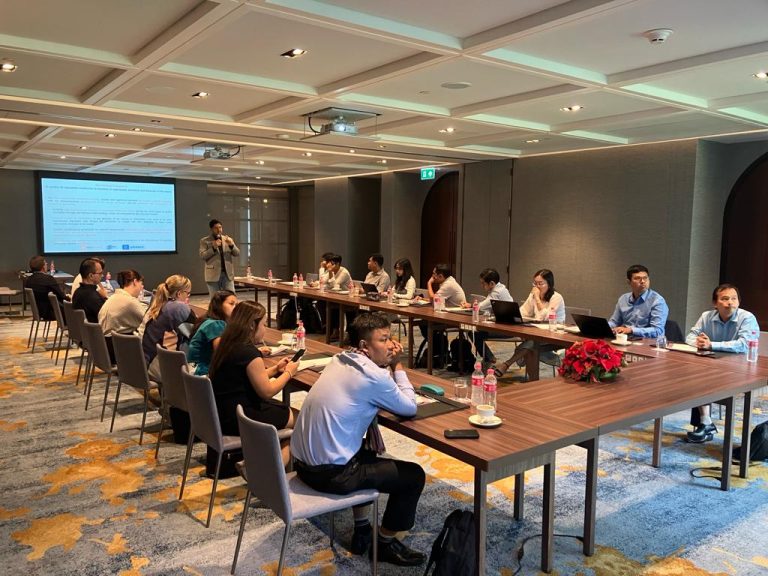
The report consists of 50 indicators and hundreds of sub-indicators arranged into five categories that take into account all aspects of the media development landscape. The five categories are
- system of media-related regulation
- plurality and diversity of the media sector;
- role of media as a platform for democratic discourse;
- professional capacity building and supporting institutions for media professionals; and
- ICT infrastructural capacities.
The MDIs were developed by UNESCO to provide a framework to evaluate the role media contributes in good governance and the democratic development of a country.
The research was implemented with the support of the Department of Media and Communication of the Royal University of Phnom Penh (DMC), UNESCO Office in Phnom Penh and the Swedish International Development Cooperation Agency.
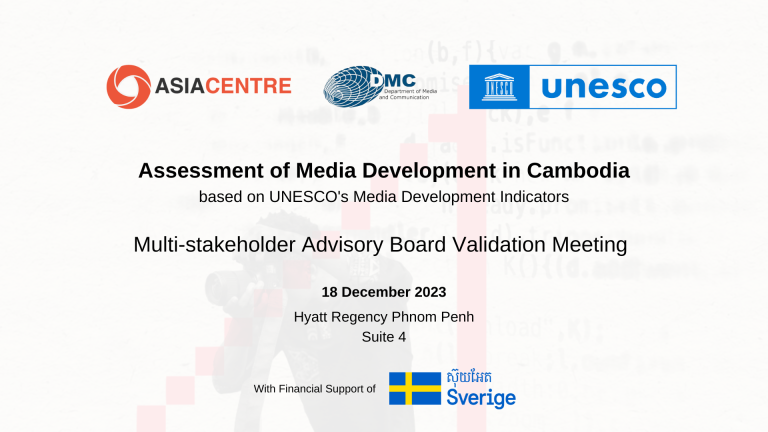
Dr James Gomez, Regional Director, provided a comprehensive overview of the findings related to the first two categories. His emphasis was on the legal provisions governing the media landscape in Cambodia, revealing a tendency to impose restrictions on freedom of expression. Additionally, he underscored the imperative to enhance media plurality in the country, given the prevalent high concentration of media and the insufficient development of community media.
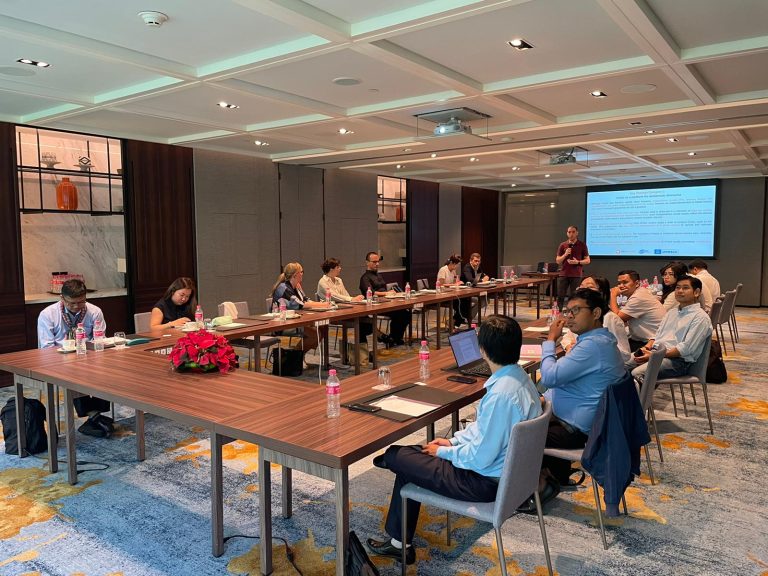
Following this, Dr Marc Piñol Rovira, Research Manager, delved into the findings concerning the remaining three categories. His focus centred on three pivotal points. Firstly, he highlighted the inadequately developed inclusivity mechanisms, crucial for ensuring media plurality. Secondly, he shed light on the adverse impact of limited opportunities for professional media training and development, resulting in a negative effect on the quality of journalism. Lastly, Dr Piñol Rovira pointed out that the infrastructural ICT capacity in Cambodia still lags behind other countries in the region.
This validation workshop with the Multi-stakeholder Advisory Board marked the culmination of two prior engagements. On 3 February 2023, Asia Centre initiated the project by unveiling its research focus and methodology. During this launch, the Centre actively sought support from diverse sectors within the media landscape to ensure a collaborative and comprehensive research process. Subsequently, on 27 October 2023, the Asia Centre convened the second meeting, during which it presented the preliminary findings of its study, further fostering dialogue and engagement with stakeholders involved in the project.
The establishment of a Multi-stakeholder Advisory Board highlights the commitment to encompassing crucial information and perspectives from all relevant stakeholders in the country within the research framework. This intentional approach is geared towards fostering a comprehensive and well-informed analysis, which, in turn, serves as the bedrock for the formulation of well-informed policy recommendations.
The Asia Centre is currently in the process of taking onboard all comments to the assessment report with the intention of finalising it in February 2024. Subsequently, a communications plan will be implemented, encompassing the development of digital content and op-eds. This strategic approach aims to amplify the recommendations and ensure a road map for their effective adoption and implementation.
Asia Centre is a civil society research institute in Special Consultative Status with the United Nations Economic and Social Council. It serves as a knowledge partner and undertakes evidence-based research as well as provides capacity-building training for end beneficiaries. If you would like to collaborate with the Centre, please send an expression of interest to contact@asiacentre.org.
Follow Asia Centre’s social media channels for more information.

